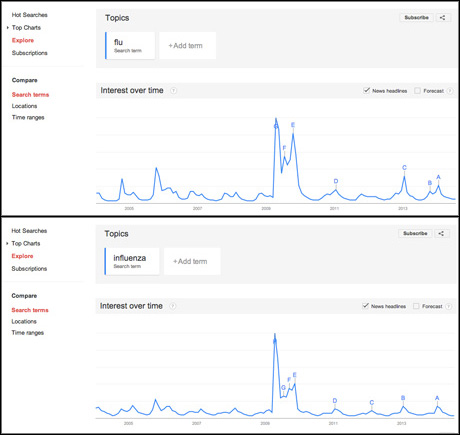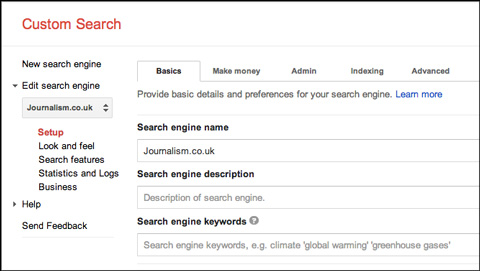
Digital tools and platforms are now an integral part of the role for most journalists in modern newsrooms.
However, many still do not know how use advanced Google search techniques to make their day-to-day work more efficient, said Dan Russell, über tech lead, Google Search Quality and User Experience Research.
Speaking at an Investigathon organised today in London by Google and the Organized Crime and Corruption Reporting Project (OCCRP), Russell shared tips for advanced search techniques to help journalists in research, newsgathering and verification.
1. Search-by-image
This function can be used to identify unknown objects, or the location where a photograph was taken.
To search by image, go to Google Image Search and add your photo, either by URL, uploading or dragging-and-dropping from your computer.
The search results will then show a list of sites where that image has appeared, which can then be narrowed further using contextual keywords.
This technique can also be used to identify just a smaller part of a wider image, such as a logo, by cropping the photo to its most salient point, said Russell.
Google Image Search is particularly useful, said Russell, because "it allows you to take previously unanswerable questions and answer them in seconds", sometimes quicker than a text-based Google search.
2. Search by colour
This is a useful function if you might not remember the name of, say, a book you want to use in research, but you remember the colour of it.
Go to Google Image Search and input your search query, click the 'search tools' button and then 'colour' and make your selection from the drop-down below 'colour'.
"This relies on something that's subtle about human perception," said Russell. "We've all probably heard that recognition beats recall".
3. Google Alerts
Google Alerts allow users to receive email notifications for certain keywords when they are indexed in Google's search results, and are an efficient way to track news around a certain topic or region.
To create a Google Alert, go to google.co.uk/alerts and input your search query. You can choose to get all results or just content from categories such as news, blogs, video, as well as how often you want to receive notifications – daily, weekly, or as-they-happen.
4. Google Trends
Many journalists already use Googe Trends to discover the most-searched for terms around a particular topic or area, noted Russell, but users can also "incentivise the query trends" by region or by time.
To do this, navigate between the 'location' and 'time range' options in the right column (there is also the option here to compare multiple search terms).
As well as being a useful tool to inform content based on what people are searching for, journalists can also use the service to see the terminology their readership is searching for and therefore understands, said Russell, helping to optimise stories for search.
For example, see the difference below in results for 'flu' and 'influenza' around the time of the H1N1 scare in 2009.

Screengrab from Google Trends showing the difference in results between 'flu' and 'influenza'
5. Google Correlate
Google Correlate allows users to see how a specific search query coordinates with real-time trends, and varies in popularity over a certain time frame.
Sort of like a reverse Google Trends, users can also enter their own data to receive a list of search queries which follow a similar pattern.
This is a useful tool for journalists, said Russell, because correlated search queries will give journalists ideas for topics to investigate that they may not have thought of.
However, users should be aware that the tool currently only uses search data from the US.
6. Google in other countries
News and opinion can differ wildly around the world. So for journalists seeking perspectives on a subject from a country other than their own, Russell recommends doing a search for the Google site for that specific area.
"Google is not this single unitary super planet-sized organism," he said, adding that while many people are familiar with Google UK and Google US, there is "basically a Google per country".
"When you go to a particular country's Google, you're getting content for that country primarily," said Russell, explaining that a search query on Google UK would not necessarily yield the same results as Google US.
Therefore, to find information on, for example, what India thinks of the Eurozone crisis, users should search on google.co.in rather than searching their country's native Google, he said.
7. Custom Search
Although you can do a Google site search to search within just specific cites, if there are a number of sites you do this for on a regular basis you might want to create a a Google Custom Search Engine (CSE).
This allows you to search just one site or individual pages from a site.
To do this, go to google.co.uk/cse and click the blue 'create a custom search engine' button, add the name and URL of the sites (or pages) you want to search and click 'create'.
CSE will then generate a URL for your custom search engine, which you can bookmark. You can also embed custom search within your site.
Below is a site search we created for Journalism.co.uk.

Screengrab from Google Custom Search Engine
Free daily newsletter
If you like our news and feature articles, you can sign up to receive our free daily (Mon-Fri) email newsletter (mobile friendly).
Related articles
- Audiences, AI and audio apps: five talking points from Perugia
- Protecting independent journalism, with Lexie Kirkconnell-Kawana of IMPRESS
- Why Australia's bid to make big tech pay for news failed: views from an indie publisher
- Five key takeaways from the UK select committee on the future of news
- Finding purpose for AI in the newsroom









